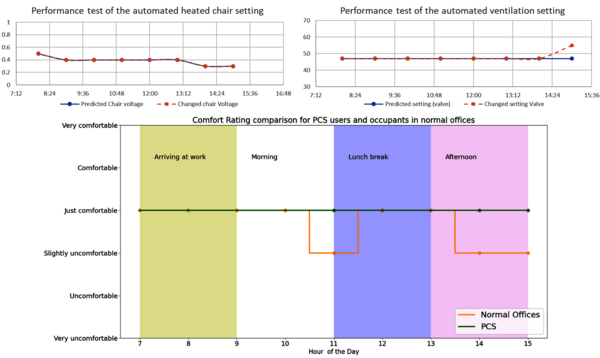| EngD trainee | Petros Zimianitis |
| Project | Towards automated personal comfort systems for heating, cooling and ventilation Design and control strategy for Personalized Comfort Systems in office buildings |
| University supervisor | dr.ir. Rick Kramer |
| Company supervisor | J. Dubbeldam |
| Name of company | Kropman Installatietechniek |
| Period of project | Augustus 2021 – July 2023 |

Development of an early-stage multi-criteria decision support tool for indoor climate conditioning of archive buildings
Archives act as a safekeeper of the cultural identity of any nation. Archive guidelines in the Netherlands prescribe a stringent indoor climate requirement as a favorable condition for the long-term preservation of hygroscopic collection objects. Pursuing such indoor climate targets requires year-round air-conditioning, resulting in an energy-intensive nature.
On the other hand, growing evidence suggests that most collections preserve well under a wider range of indoor conditions and prompt the preservation community to rethink the notion of “the more stable, the better”.
Due to a growing demand for physical archives that can preserve heritage collections and a lack of energy-efficient repositories, many new archives will be constructed in the upcoming decade. The objective of designing a new generation of sustainable archives is to strike the right balance between long-term conservation and energy-efficient operation in coming years, in accordance with improved energy efficiency targets and changing climate.
In this context, the term ‘sustainability’ refers to both the economical usage of energy and the durable preservation of cultural heritage. To improve the design sustainability of archives, practitioners from different disciplines, such as conservators, architects, and building engineers, need to collaborate from the early design stage. Engaging such a wide spectrum of experts brings a plethora of insights into decision-making.
On the other hand, it presents a new challenge due to a lack of commonality in knowledge between respective technical experts. The current project envisions bridging the communication gap between stakeholders. Developing a user-friendly web-based tool which packs a state-of-the-art building simulation program has thus been the objective of this project. Through the tool, stakeholders can evaluate the impact of different design decisions through different performance indicators like annual energy consumption, collection lifespan, and percentage share of renewable sources in end-use demand. The main feature of the tool is to enable early-phase design support which reduces designing effort and requirements of significant experience in building performance simulations for users.
The tool has been developed with continuous research on different design aspects of building energy simulation like reference weather information, building envelope properties, climate system and controls, discussion with relevant design experts and practitioners and feedback integration from such discussions. Additional focus has been put on assimilating all such insights and design decisions under the umbrella of a single user-friendly application.
